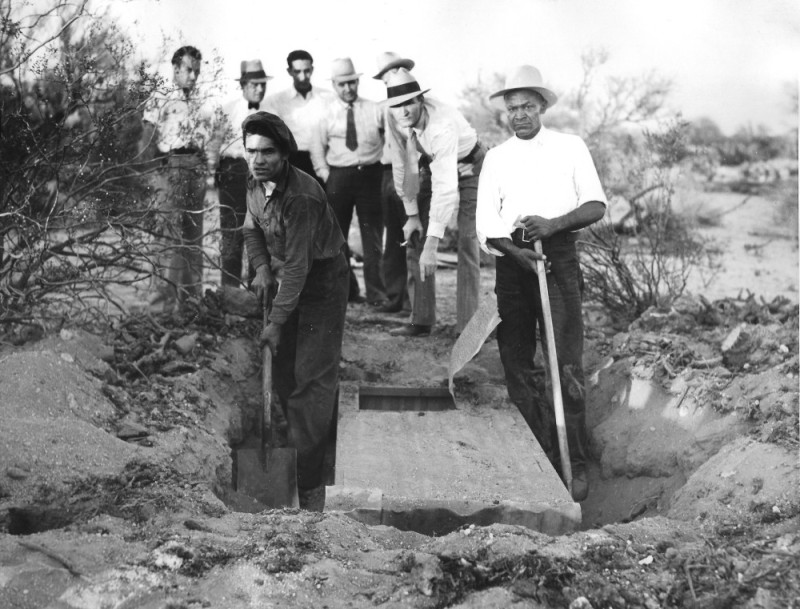Finally! Sent book proposal off to a publisher
After five years with this project, The Mystery of the Iron Box, the story behind the 1934 ransom kidnapping of June Robles of Tucson, the book proposal is off to a university press for consideration. If all goes well, it will probably take about two years for publication, the academic hoops being what they are. Now to turn to the next project, whatever that may be. Each presents hurdles… another 1934 kidnapping that involves copying 15,000 pages of FBI files (Yikes!)…. or a biography of New Mexico rustler king, John Kinney….. never tackled biography before, and have yet to come across much of what went on in Kinney’s mind. Third option, trying to find a fresh take on the nemeses of Wyatt Earp, the Arizona Cow-Boys. I’ve got an idea for that, but will it translate into a book-length...
Read MoreThe books that… fill my Churchill shelf. PART 3: History of the English-Speaking Peoples
Churchill, The History of the English Speaking Peoples (hereinafter HESP), (my copy is the American edition, Dodd, Mead, & Co., 1962 reprint; first published 1956-1958). Volumes I-IV: The Birth of Britain; The New World; The Age of Revolutions; The Great Democracies. The four-volume History of the English-Speaking Peoples, begun by Churchill before the Secord World War, is the last book he completed and published. It’s a highly personal view of British and American history (with very little on the English speaking nations of Canada, Australia, New Zealand, and even next-door Ireland. As for Indians, Africans, and other non-white colonials, for Churchill they are merely the beneficiaries of British imperial rule.). Largely written in the late 1930s, it was left unfinished when the war erupted. He returned to it after his second prime ministry ended in 1955. By that time,...
Read MoreThe Books That… Fill my Winston Churchill shelf – Part 1
Books written by Churchill TIME-LIFE Special Edition of The Second World War (Golden Press, 1960) History of the English-Speaking Peoples (HESP)( unless otherwise noted, Dodd, Mead & Co., 1962 reprint; first published 1956-1958), Volume I: The Birth of Britain: (do not have this yet: on the list to purchase); II: The New World, 1485-1688 (used, excellent condition, no dust jacket) III: The Age of Revolution 1689-1815 (fair condition, no dj) IV: The Great Democracies, 1815-1900) (paperback ed.) Marlborough: His Life and Times: A one-volume abridgment, edited by Henry Steele Commager, containing roughly ½ the original text, focusing on the Duke’s stellar military career at the expense of the political career and Churchill’s attack on the English historian Macauley, who was largely responsible for the denigration of Marlborough as a treasonous, and overly greedy crown subject. (Charles Scribners Sons, NY,...
Read MoreHistory: A science of thought experiments
“How do historians know when they’ve established, once and for all, the causes of any past event? The answer is, of course, that they don’t.” John Lewis Gaddis I regularly read Old West discussion forums. The most active such website may be the “Tombstone History Discussion Forum,” filled with lively arguments over the Gunfight at the O.K. Corral, the iconic Wyatt Earp, Tombstone (“the town too tough to die”), and all things related. The opinions of forum posters do appear to shift on occasion, but mostly participants seem to talk past one another, their historical and evidentiary arguments on any side of the controversies du jour making little apparent headway in the face of strong, preconceived ideas. I thought a lot about the concrete stances taken on a fluid river of historical knowledge as I recently read an...
Read MoreOn Writing History…. that people want to read
“Sadly, historical writing has quite a bad reputation. Newspaper reviewers will often praise a history book because it’s not like a history book. They will say it’s ‘as good as fiction’ and thus ‘a pleasure to read.’….” Ann Curthoys and Ann McGrath, How to Write History That People Want to Read (Palgrave MacMillan, NY, 2011 edition), p.2. The number of “how to” books directed at the Ph.D. who desires to turn a doctoral thesis into a book suggests that many have gotten all the way through graduate school by writing only for their academic mentors. While university English departments offer courses in creative or literary nonfiction, some history students seem to have passed by these. The ability to structure and tell a true story well enough to hold a general audience’s attention to the book’s end too often takes second...
Read MoreI can’t stop buying books
Seven months ago, I got back into reading in a big way. The bad news is that I’ve already boxed almost all my books in preparation for a planned move. I suppose I could unpack the boxes and find something to read, but it’s easier to just buy another book. And that’s what I’ve been doing. I’ve purchased 49 books in the last 30 weeks, including 31 paper (physical) books and 18 e-books. I still prefer the physical book, but the e-books come in handy when traveling or after lights out. I’ve read to completion 25 of the 49, and have started four others. Another five titles are lined up on the TBR (“to be read”) shelf, and I am eager to dive into them. I’ve already consigned to the DNF (“did not finish”) shelf three books that did...
Read More



